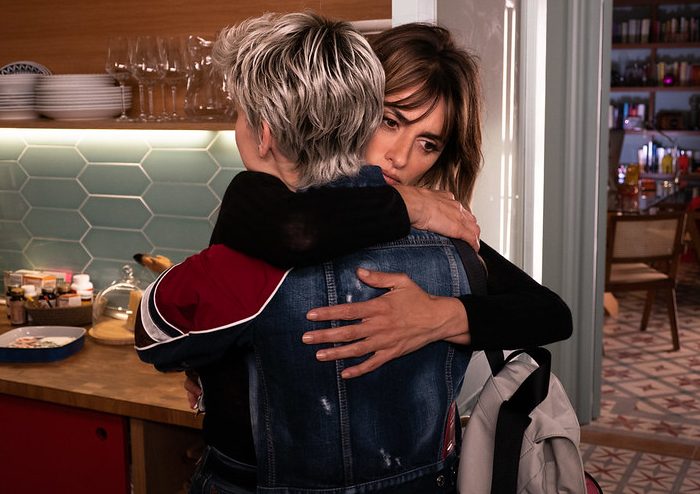Reviewing 2021’s cinematic output is different from years past. Not only were more movies watched at home this year, but there are no clearly defined trends to speak of. (Showing grand productions like West Side Story and intimate actor showcases like Mass in side-by-side multiplex theaters is enough to induce cinefile whiplash.)
One reliable throughline, though, is the value of living your truth. This year’s best films are cautionary tales that show the risks of bottling up, journeys where a nugget of validity is found, and celebrations embracing uniqueness.
Benedetta
Paul Verhoeven’s take on horny nuns in the 17th century goes far beyond what is being described as “Showgirls in a convent.” The film is unabashedly salacious, but don’t ignore Benedetta’s self-aware winking at sexuality and religion as it gets gloriously messy. The film begins when a young girl’s prayer to God is answered by a bird pooping into a man’s eye, and its playful handling of piety only escalates from there.
Parallel Mothers
Comparing the lives of two women from the moment they give birth onward might have fallen apart in the hands of another director, but Pedro Almodóvar nails it. Janis and Ana (Penélope Cruz and Milena Smit) have little in common, but a maternal bond brings them together and they connect in the beginning of their respective motherhoods. Smit gives an incredible performance as the younger half of the duo who carries complicated emotions through a complex, unpredictable journey.
The Power of the Dog
Adapted by Jane Campion from the Thomas Savage novel, The Power of the Dog deals heavily with toxic masculinity that has overstayed its welcome in the no-longer-wild West. Stunning cinematography frames this caustic, revelatory western in which Phil (Benedict Cumberbatch) might be a bully cattle driver, but the closer we get to him the more we learn about the emotional complications bubbling under his seldom-bathed surface.
Swan Song
Indulgent, touching, and wholly unconcerned with believability, Swan Song is equal parts nostalgia and the refusal to be defined by it. Udo Kier’s turn as Pat, a hairdresser coming out of retirement for one last coiff who goes on a strut down memory lane, is one of the year’s best performances. His near-perfect good luck along the way may bring about some disbelief in the audience, but not in Pat. He is the center of his story and relishes every single lumen of that spotlight.
Titane
French director Julia Ducournau’s second feature film might seem difficult to watch, but it was awarded the Palme d’Or at Cannes for its brilliance. Tracing one person’s transformation through a series of occurrences in a short period of time, the film is sexy and violent. The characters are difficult to relate to, and it is fascinating to watch. Titane defies genre classification, but borrows from horror masters David Cronenberg and John McNaughton. Easily the least accessible film on this year’s list, but also the most fearless.
The Lost Daughter
Maggie Gyllenhaal’s directorial debut is stunning. Olivia Colman is Leda, a university professor on holiday in Greece. The serene beach and her stacks of books are the perfect escape until a loud family arrives and dominates the seaside village. As their behavior grates on her, memories flood back, and Ledas’s days as a young mother return to haunt her. Jessie Buckley plays the younger Leda, and the two actresses sync perfectly as a tag team portraying Leda’s entangled relationship with motherhood and career.
Barb and Star Go To Vista Del Mar
We all deserve a film as heartfelt, audacious, and escapist as this. Barb and Star (Annie Mumolo and Kristen Wiig) are two Nebraska natives who love their cozy, beige lives. Through an act of kismet the lifelong friends find themselves with a little extra cash and no real responsibilities, and at the urging of a friend they head to Vista Del Mar. Barb and Star encounter henchmen, talking crabs, and a few musical numbers along the way that launch the movie from a silly, sex-positive flick to downright mesmerizing.






